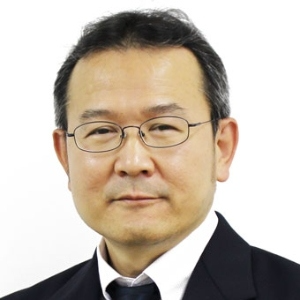Title : The transcription factor p63 in stem cell self-renewal and cancer development
Abstract:
The transcription factor p63 plays an essential role in maintaining homeostasis and regeneration of epithelia. Although p63 has high sequence and structural similarities to the tumor suppressor p53, it is rarely mutated in human cancers. However, p63 is frequently upregulated in various cancers of epithelia, leading to the hypothesis that p63 plays predominantly an oncogenic role. However, transgenic mice overexpressing p63 do not produce spontaneous tumors, raising the possibility that alterative mechanisms of p63 would exist in cancer development. We will present two novel mechanisms of p63-mediated epithelial carcinogenesis that we found recently. First, we discovered that aberrant splicing of p63 sensitizes epithelial stem cells to tumorigenesis in the presence of carcinogen exposure or oncogene activation. Second, we discovered that co-expression of wild type p63 and mutant K-ras, but not either alone, in the pancreas, one of the few epithelial organs lacking p63, leads to squamous cell carcinoma of the pancreas, the most dangerous cancer subtype in human with the least survival rates. Together, these results demonstrate that p63 is an oncogene that supports the two-hit theories in epithelial cancers. Expression of p63 can be used as a biomarker for the enrichment of epithelial stem cells. We have found recently that a small molecule compound RepSox, a potent inhibitor of the TGFb signalling, stabilizes p63 proteins, allowing us to make the following two challenging tasks possible. First, autologous skin grafts in human have been prepared as epidermal sheets cultivated on top of the murine-derived 3T3-J2 feeder cells since 1970. 3T3-J2 cells possess indispensable properties to allow skin epidermal stem cells to grow while minimizing their spontaneous differentiation. However, the use of feeder cells of mouse origin has been the debate involving ethical concerns. We showed that the use of RepSox could replace 3T3-J2 cells with human feeder cells such as dermal fibroblasts and adipocyte-derived mesenchyme. Second, despite its importance in basic research of regenerative medicine, it has been challenging to grow epithelial stem cells of mouse origin, including the skin stem cells, as they rapidly senesce and terminal differentiate. However, we found that the use of RepSox enables long-term expansion of stem cells of mouse epithelial tissues such as the skin, cornea, bladder, trachea, oesophagus, oral mucosa, tongue, salivary glands and thymus, while avoiding their malignant transformation. The list of the successful expansion of epithelia is expanding and we recently confirmed that the same protocol could be applied to expand primary stem cells of mouse tympanic membranes and middle ear mucosa. Thus, the “Boston RepSox” protocol should have a wide range of applications in both basic and clinical studies.



